Law & Politics
An Artist Shut Down His Own Show at New York’s HG Contemporary After Claiming the Dealer Didn’t Pay Him or His Framers
Louis Carreon has abruptly ended his relationship with the dealer.
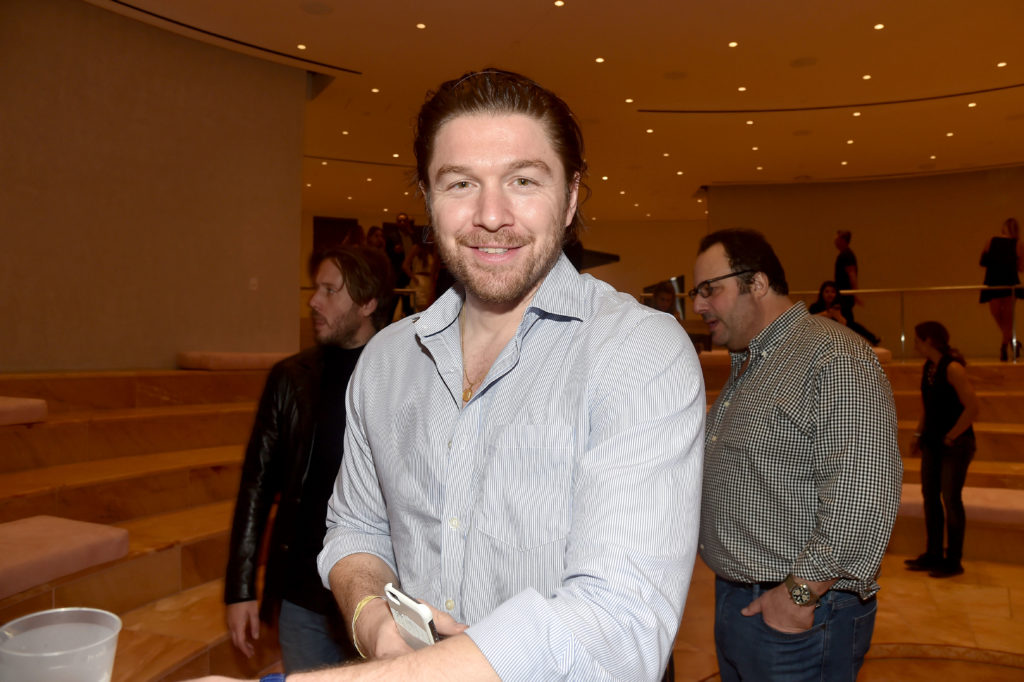
Louis Carreon has abruptly ended his relationship with the dealer.

Sarah Cascone

When artist Louis Carreon first met Philippe Hoerle-Guggenheim he was impressed by the New York dealer’s sophistication and his last name, which suggested an impeccable art world pedigree (museum founder Solomon R. Guggenheim is a “distant” relative, the dealer says on his website). Now that Carreon has worked with Hoerle-Guggenheim, he has a very different impression.
Last week, Carreon took down his show at Hoerle-Guggenheim’s Chelsea gallery, HG Contemporary, a week ahead of schedule, repossessed the art, and accused the dealer of failing to pay him for sold work. Carreon’s lawyer sent Hoerle-Guggenheim a letter informing him of the termination of Carreon’s consignment and representation agreement with the gallery and gave the dealer seven days to return all works by the artist.
Carreon claims that the dealer previously sold one of his works at an exhibition in Madrid this past spring, but took months to inform the artist of the transaction and has yet to pay him for it. “It’s like pulling teeth to get any information out of this guy,” Carreon told artnet News.
The artist also said he heard from the framers in Madrid that they were never paid the €3,700 ($4,060) they were owed for their work—even though Carreon himself footed the bill. “We gave [Hoerle-Guggenheim] that cash in Madrid months ago,” Carreon said. “This [framing company] is a small business. They spent a week making sure the show was framed correctly—those relationships matter to us.”
Hoerle-Guggenheim denies the allegations. “There are absolutely no outstanding invoices as suggested,” the dealer told artnet News in an email. “This feels honestly like a try to get his name in the press attached to me.”
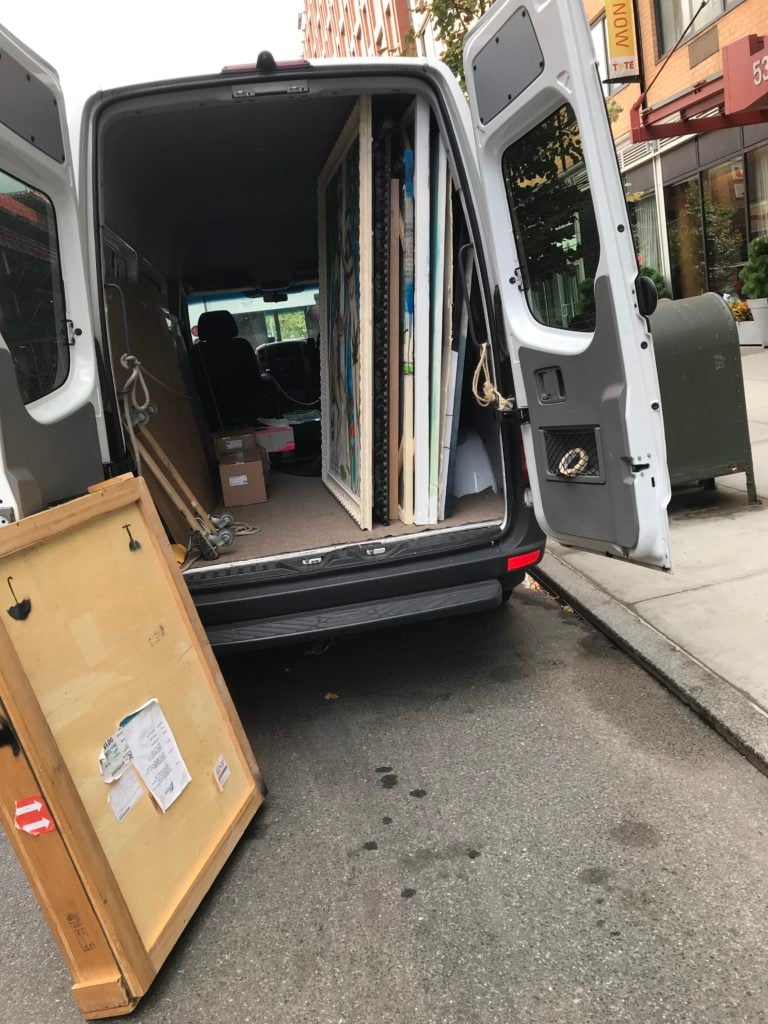
Works from Louis Carreon’s show at HG Contemporary after the artist closed the exhibition early. Photo courtesy of Louis Carreon.
In a letter to Hoerle-Guggenheim, Carreon’s attorney wrote that the dealer’s failure to pay the framers was not only “unethical” but “has reflected poorly on Mr. Carreon and caused irreparable harm to his hard-earned reputation.”
That reputation is something Carreon is particularly sensitive about, having spent two years in federal prison on drug-related charges. He had gotten his start painting graffiti in the early 1990s in Long Beach, California, but turned to art further during his incarceration. Carreon credits his art, which is steeped in his Christian faith, with helping him overcome addiction.
After years of staging exhibitions on his own, Carreon says he met Hoerle-Guggenheim in 2018, during Art Basel Miami Beach. The dealer was hosting a dinner at the Faena Hotel that featured a project Carreon had done with UBS Wealth Management. In Carreon’s account, Hoerle-Guggenheim told him that he was impressed with how far the artist’s career had gone without formal representation and proposed that they work together.
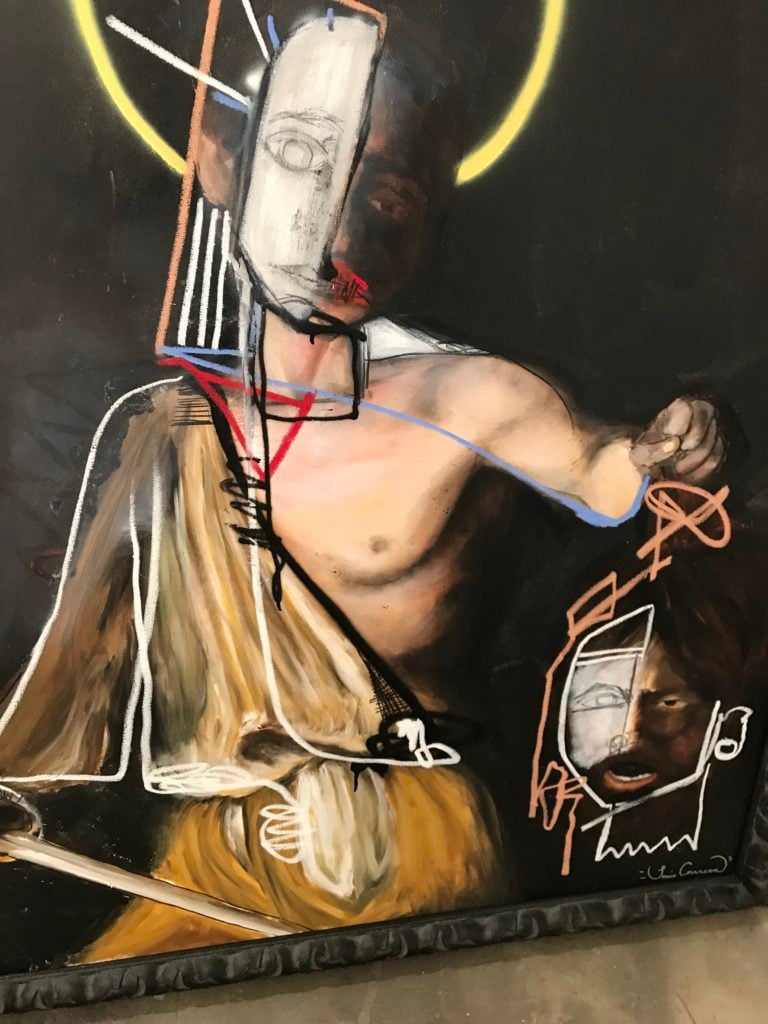
“Louis Carreon: Find Your Halo.” Photo courtesy of Louis Carreon.
Carreon says he had reservations about Hoerle-Guggenheim from the start, having read about a previous lawsuit filed against the dealer by collectors Liza Vismanos and Randy Rosen. The couple claimed to have paid the dealer $520,000 for a painting by Pierre-Auguste Renoir that was never delivered. The suit also involved a $90,000 painting by graffiti artist RETNA and a $35,000 work by French sculptor Cévé, which the couple said they had also paid for but not received.
RETNA, who used to show with HG Contemporary, denied ever agreeing to sell his work to Rosen. “Hell fucking no I didn’t,” he told artnet News at the time. “I don’t even know who Randy Rosen is. I have an extensive database of who buys and collects my work.”
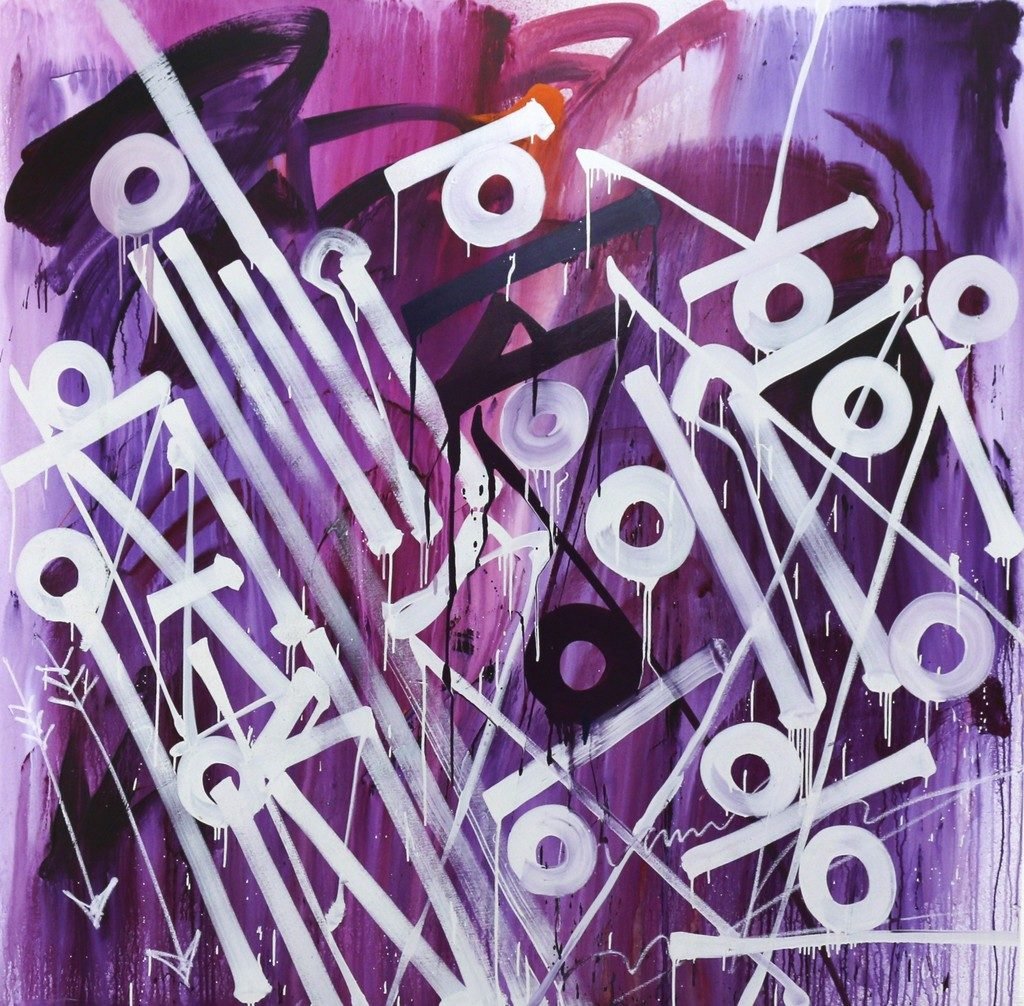
RETNA, Brimstone (2013). Courtesy of HG Contemporary.
Hoerle-Guggenheim settled that lawsuit in June. “The matter has been resolved to all parties’ mutual satisfaction and Guggenheim delivered the pieces by RETNA and Cévé,” Rosen’s lawyer, Jonathan Steinsapir, told artnet News in an email.
Despite the lawsuit, Carreon says he decided to take the risk and work with Hoerle-Guggenheim partly because they had bonded over their Christian faith. “He said he was a Christian and he wanted a Christian artist. That’s what opened the door for our relationship and our trust,” Carreon said. “I’m not from the art world, and the art world’s hard to penetrate.”
But ever since then, Carreon has been disappointed. He claims that he’s only ever made $30,000 from Hoerle-Guggenheim, for the sale of a $60,000 painting to Rosen, and that the dealer did little to promote his work.
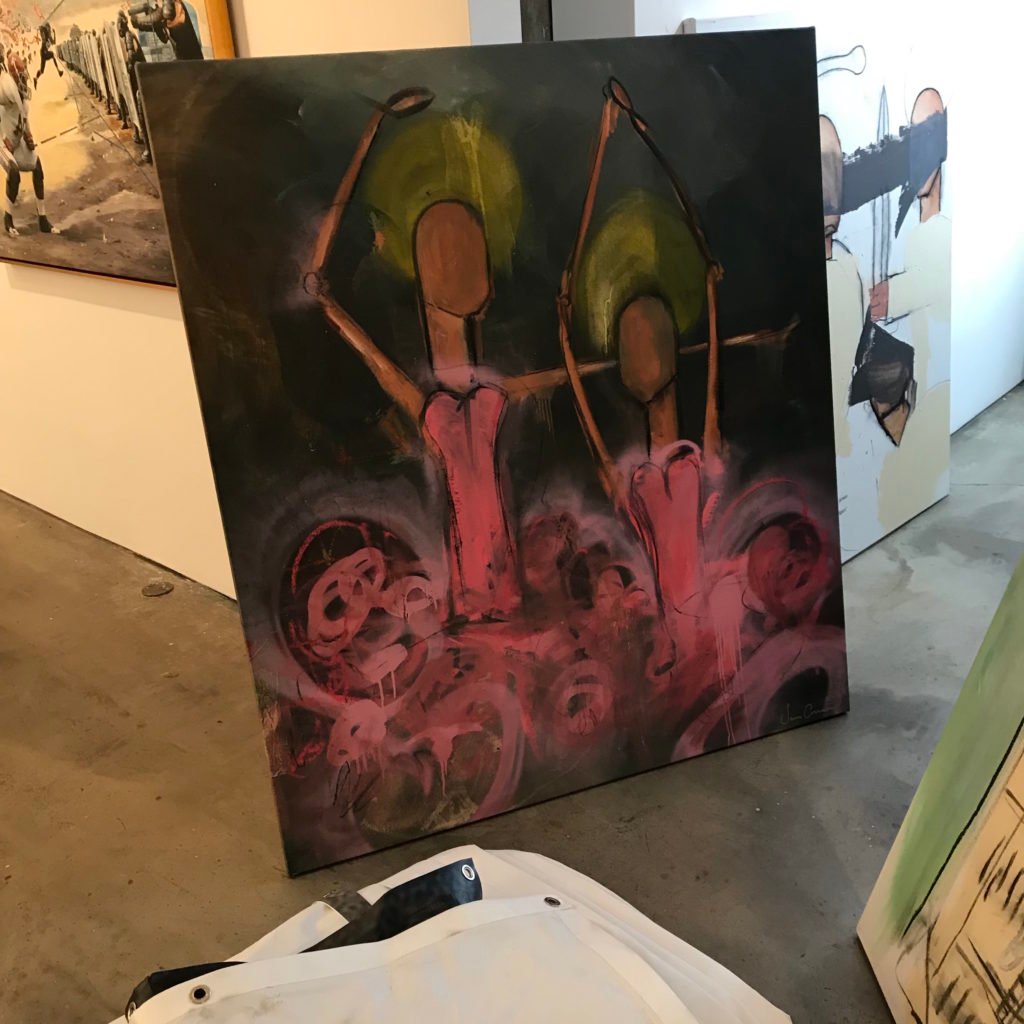
“Louis Carreon: Find Your Halo” being deinstalled at HG Contemporary. Photo courtesy of Louis Carreon.
Hoerle-Guggenheim rejected the notion that he has not fulfilled his end of the agreement. “I do not believe that I have made promises about sales. I know work always sells over time, we were new to the artist’s market and it started to pick up momentum,” Hoerle-Guggenheim wrote in a letter to Carreon’s lawyer, which was shown to artnet News. “It was all in the spirit of a partnership, regardless of who gained more from it.”
Even now, Carreon alleges that the dealer is continuing to “sell” works from the de-installed show even though they’re back in the artist’s possession. Carreon said that two collectors have told him that they have already paid Hoerle-Guggenheim for the works.

Louis Carreon. Photo courtesy of Louis Carreon.
In an email, Hoerle-Guggenheim wrote that this was partially true, but that “the sale had been long negotiated pre the ending of our relationship.” He added that the accusations were “an attempt of defamation potentially hurting my business and artists signed with the gallery and will all be taken very seriously.”
“I wanted to believe in this dude, because he’s very charming,” Carreon said. But, “if you’re smart and you’re a collector, all you have to do is look this guy up and you’re not supporting his choices.”